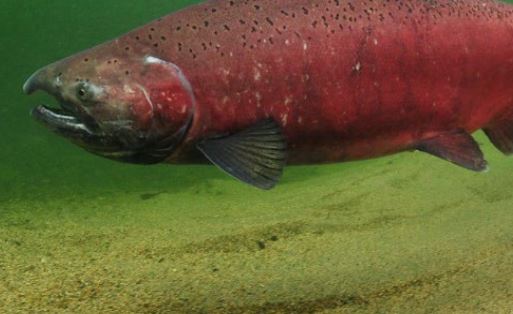North Island-Powell River MP Rachel Blaney sent a message to the new federal fisheries minister today.
That is, it’s important for Bernadette Jordan to understand the realities that people in coastal communities are facing.
Blaney hand-delivered her office’s report Chinook Public Fishery Restrictions: Impact on the federal riding of North Island – Powell River to Jordan, the new Minister for Fisheries, Oceans and the Canadian Coast Guard.
It was previously sent to the former Minister, Jonathan Wilkinson, on June 4, but Blaney said that she didn’t receive a reply before the election.
“The impacts of not just the restrictions on Chinook themselves, but the timing and tone of the announcement of those restrictions, was profound,” Blaney said.
Blaney said that she hopes this information will help ensure that any restrictions or closures are done in a way that has the least impact on local economies, while still protecting wild salmon and the ocean at large.
“I hope the new Minister finds the time to visit the West Coast soon,” Blaney said.
“The Pacific coast is very different from the Atlantic where she is from, and the more she can hear and learn from the knowledgeable people in our riding, the better equipped she will be to make decisions that benefit everyone.”
The report says that the economic impact of the decision to restrict chinook retention “cannot be overstated.”
We heard from charters, guides, outfitters, and lodges that, on average, they will be experiencing a 50 percent decrease in revenue this year. The effects, to a lesser degree, will be felt by the tourism industry,” it said.
“Hotels, restaurants, transportation and recreational entertainment providers are expecting a decrease in traffic. Both the fishing and tourism industries will be hiring less, and in some cases no seasonal staff this year, and some will have no choice but to lay off current staff.”
Blaney said there is a “lack of understanding at the federal level of the realities in smaller coastal communities.”
In major urban centres slashing an industry can hurt, but most people can find employment in other industries. For the communities in the riding of North Island – Powell River that is not the case,” she added.
“Fisheries are the lifeblood of most economies, and any abrupt closures or restrictions leave people with few or no other options when it comes to supporting themselves and their families. This difference needs to be recognized by the minister and department and taken into consideration as part of their decision-making process.”
As part of the report, Blaney requested that the minister take the following actions:
- Promptly provide a comprehensive response, addressing all concerns outlined in this report… including justifying the closures of Chinook public fisheries… given their low catch rate;
- Create a bold, comprehensive and fully-funded action plan to support Pacific fisheries;
- Commit to getting more DFO staff on the ground and in the water as soon as possible;
- Visit the riding of North Island-Powell River and speak to people affected by these measures;
- Release the funding for the BC Salmon Innovation and Restoration Fund as soon as possible; and
- Purchase the necessary equipment for salmon hatcheries to begin adipose fin-clipping and implement a mark-selective fishery as soon as possible.
Blaney said, “Ottawa needs to know how their decisions affect the people on the coast who live to fish and fish to live, and that it is these people who care more than anyone else about the health of wild Pacific salmon.”
She added, “My job is to protect both the economy and ecology of North Island – Powell River, and I take great pride in representing people such as yourselves who help me.”






